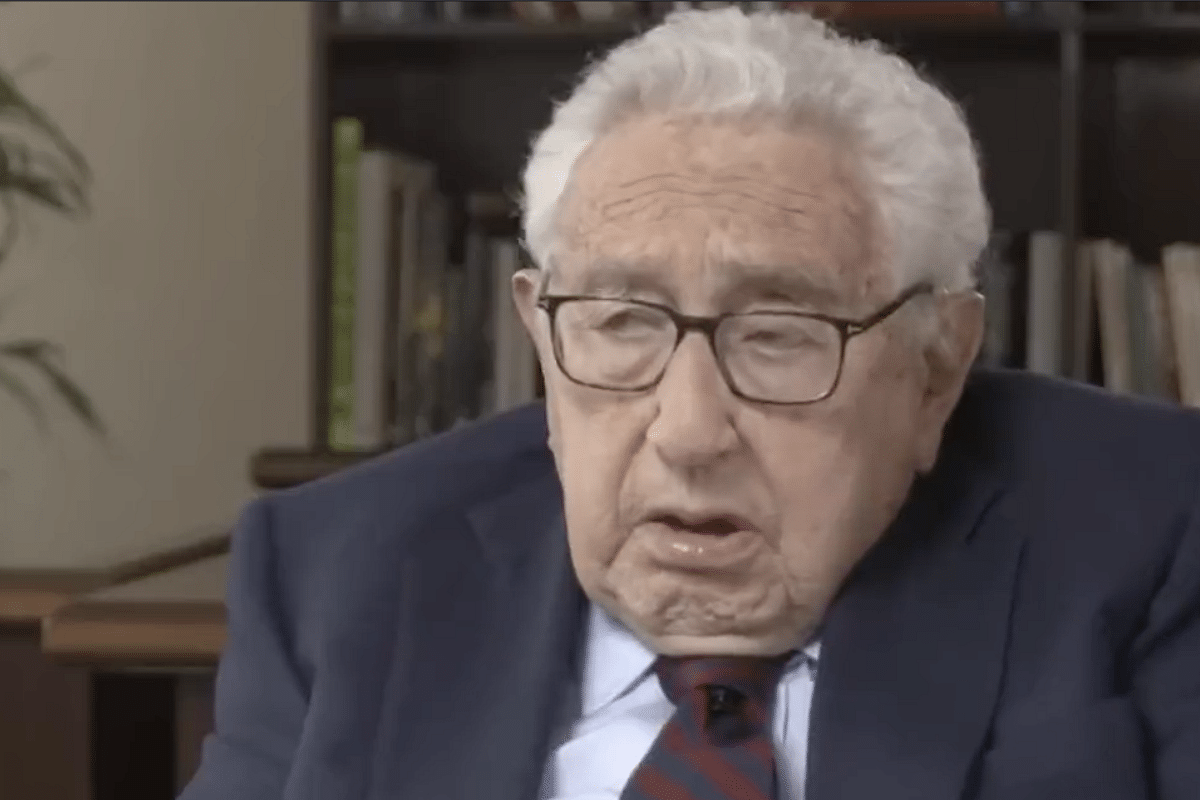News Headlines
Kissinger's Controversial Legacy In India-US Ties: Derogatory Remarks About Indira Gandhi, Indians; Pro-Pakistan Stance In 1971 War

Henry Kissinger
Henry Kissinger, the former US Secretary of State, passed away on Wednesday (29 November) at the age of 100 in Connecticut, US.
His death brings to light his significant yet complex role in shaping US foreign policy, particularly in relation to India.
Kissinger's Role in the 1971 India-Pakistan War
Kissinger's tenure as Secretary of State was marked by significant global events, including the 1971 India-Pakistan war. This conflict, which led to the creation of Bangladesh, saw the US, under President Nixon and Kissinger's guidance, supporting Pakistan.
This policy decision was controversial as it was perceived as being supportive of Pakistan's military actions in East Pakistan, despite reports of human rights violations.
Declassified Tapes and Remarks on Indira Gandhi and Indians
A key aspect of Kissinger's legacy in India is tied to the declassified tapes from the 1970s, revealing conversations between him and President Nixon.
In these tapes, which were released in 2005, derogatory remarks were made about then Indian Prime Minister Indira Gandhi and Indians.
The two are heard in the tapes talking about former Prime Minister Indira Gandhi shortly after a meeting with her.
During the heated conversation, Nixon refers to Gandhi as an "old witch". Kissinger calls her a "b***h" and says the "Indians are bastards anyway".
The tapes also brought to light Nixon's derogatory remarks against Indian women and his description of Indians as "most sexless" and "pathetic".
Soon after the remarks became public, Kissinger said he regretted his remarks and that he respected Mrs Gandhi.
"[The foul language has] to be seen in the context of a cold war atmosphere 35 years ago, when I had paid a secret visit to China when President Nixon had not yet been there and India had made a kind of an alliance with the Soviet Union," he said in an interview with NDTV.
Despite the damage-control attempt, the tapes became an indelible part of Kissinger's legacy, as his disregard for human rights abuses in then East Pakistan.
Why US backed Pakistan in 1971 war
The Nixon administration harbored concerns regarding the expanding influence of the Soviet Union in the Indian subcontinent, especially given India's strengthening relationship with the USSR. In response, the United States initiated overtures towards China, a nation that shared strained relations with both India and the USSR.
This diplomatic venture was facilitated via Pakistan. The US was apprehensive that addressing the human rights violations in East Pakistan might hinder this diplomatic outreach.
In a 2016 interview with The Atlantic, Henry Kissinger discussed the US-China breakthrough during the Bangladeshi crisis.
He explained that Pakistan served as a key intermediary between Beijing and Washington. Kissinger acknowledged that condemning Pakistan's human rights violations during the Bangladesh crisis would have jeopardized the US's diplomatic channel with China.
He emphasised the balance between human rights and national security in American policy, noting that sometimes these goals conflict, requiring careful judgment and public support.
Support Swarajya's 50 Ground Reports Project & Sponsor A Story
Every general election Swarajya does a 50 ground reports project.
Aimed only at serious readers and those who appreciate the nuances of political undercurrents, the project provides a sense of India's electoral landscape. As you know, these reports are produced after considerable investment of travel, time and effort on the ground.
This time too we've kicked off the project in style and have covered over 30 constituencies already. If you're someone who appreciates such work and have enjoyed our coverage please consider sponsoring a ground report for just Rs 2999 to Rs 19,999 - it goes a long way in helping us produce more quality reportage.
You can also back this project by becoming a subscriber for as little as Rs 999 - so do click on this links and choose a plan that suits you and back us.
Click below to contribute.
Latest